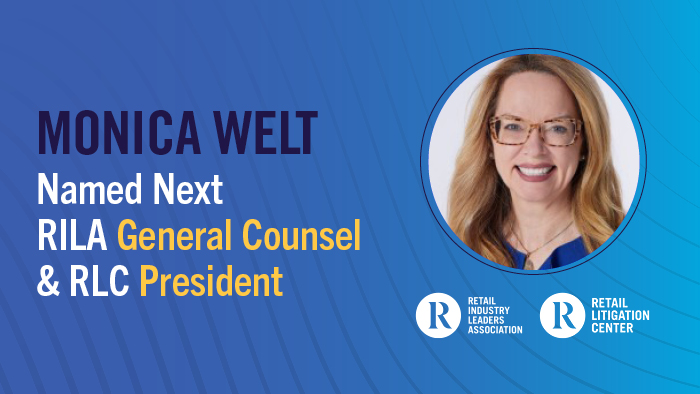Retailers, Restaurants Want SCOTUS to Protect Text Messages
Text STOP to End TCPA Abuse
- By [ Kathleen McGuigan ]
- Washington, DC
- 09/14/2020
You know the text messages you get when your curbside items are ready for pickup or your take-out order is available at your favorite restaurant? The fate of those messages is at the heart of a case before the U.S. Supreme Court this fall. Retail and restaurant advocates are urging the Court to protect these communications so consumers can continue to get the messages they need and want from the businesses they trust.
Mobile communications are ubiquitous in modern daily life. Text messages from our kids’ schools, reminders for appointments, shipping and tracking notifications on purchases and automatic texts from pharmacies with prescriptions refill reminders are commonplace—and convenient.
However, liability for sending these texts is skyrocketing in situations where businesses have no way to know that a phone number in their database that was once owned by a consumer who legitimately consented to receiving texts was reassigned by the cell phone service provider to someone new. A recent Ninth Circuit Court of Appeals decision aids professional plaintiffs and their accomplices who are using this information gap to extort hundreds of millions of dollars from businesses that are sending text messages in good faith.
This fall the Supreme Court will determine if the Ninth Circuit decision should be overturned.
The case is Facebook, Inc. v. Duguid and the issue the Court will decide is the scope of Telephone Consumer Protection Act (TCPA) liability. The TCPA was enacted by Congress to protect consumers against robocalls but it is now being used by the plaintiffs’ bar to sue businesses when they send a message to a number that has been reassigned. Businesses today are threatened with massive damages for trying to provide their customers with information that bears no resemblance to the randomly or sequentially generated robocalls TCPA prohibits. Yet, the Ninth Circuit’s decision threatens to lump these communications into the same category making well intended messages ripe for TCPA lawsuits.
The Retail Litigation Center, National Retail Federation and The Restaurant Law Center are urging the Court to reverse the Ninth Circuit’s decision and restore the TCPA to its intended scope that prohibits annoying autogenerated robocalls, while allowing consumers to receive the convenient text messages that make life a little easier. The brief highlights a week in the life of “Claire” (a hypothetical consumer) and demonstrates how helpful text messages are for consumers, especially during the pandemic. The brief also exposes the tactics of professional TCPA plaintiffs, like purchasing dozens of cell phones from targeted geographical areas and carrying them everywhere – even on vacations – for the sole purpose of attracting calls and texts to convert into lucrative TCPA claims.
“We need the Supreme Court to text STOP to the plaintiffs’ bar,” said, Kathleen McGuigan, Deputy General Counsel of the Retail Litigation Center. “Americans rely on countless communications from retailers. These messages make the shopping experience convenient and safe. We urge the Supreme Court to understand that forcing retailers to choose between holding back on communications valued by consumers or exposing themselves to rampant TCPA litigation is untenable and will end up depriving consumers of communications that make their lives easier. The Court should recognize the distinction between legitimate retail-customer communications and unwanted robocalls and restore the proper scope of the Telephone Consumer Protection Act.”
A key issue before the Supreme Court in the current case is the Ninth Circuit’s broad interpretation of what constitutes an autodialer.
“Ambiguity is the biggest problem with the TCPA,” National Retail Federation Chief Administrative Officer and General Counsel Stephanie Martz said. “Under the Ninth Circuit’s interpretation, any modern smartphone would qualify as an autodialer and subject users to a potential violation or unfounded litigation. If this statute is to remain on the books, the very least we need is clear definitions that comport with the text and intent of the TCPA. No one wants spam calls, and retailers don’t want to make them. We need to bring the court’s interpretation of the TCPA back to the harm that it’s supposed to prevent. This interpretation isn’t it.”
“Rejecting the Ninth Circuit’s interpretation will enable retailers and restaurants to send customers the information they want and need without facing the inherent risk of arbitrary and massive liability for doing so,” Restaurant Law Center Executive Director Angelo Amador said.
Joseph Palmore and Samuel Goldstein of Morrison and Foster LLP, and Meredith Slawe and Michael McTigue Jr. of Cozen O’Connor prepared the brief on behalf of the Retail Litigation Center, National Retail Federation and The Restaurant Law Center.
###
Retail Litigation Center
Directed by the chief legal officers of the country's leading retail companies, the Retail Litigation Center (RLC) is the only organization dedicated to advocating for the industry's top priorities in the federal and state judiciary. The RLC also works with leading law firms and retail corporate counsel to develop forward-thinking strategies to combat meritless mass action litigation. Founded by the Retail Industry Leaders Association (RILA) in 2010 as an independent organization, the RLC is a 501(c)(6) membership association open to all retailers and select law firms.
National Retail Federation
The National Retail Federation, the world’s largest retail trade association, passionately advocates for the people, brands, policies and ideas that help retail thrive. From its headquarters in Washington, D.C., NRF empowers the industry that powers the economy. Retail is the nation’s largest private-sector employer, contributing $3.9 trillion to annual GDP and supporting one in four U.S. jobs — 52 million working Americans. For over a century, NRF has been a voice for every retailer and every retail job, educating, inspiring and communicating the powerful impact retail has on local communities and global economies.
Restaurant Law Center
The Restaurant Law Center launched in January 2017 to enhance the restaurant industry's legal advocacy capabilities. Our goal is to protect and advance the restaurant industry, including fighting overregulation at the federal, state and local level. As special interest groups increasingly turn to the courts to enact their agendas, the Restaurant Law Center will give our industry another avenue to ensure the voice of America’s restaurants is heard on the legal front.
Tags
-
Legal Affairs & Compliance
-
Technology & Innovation
-
Retail Litigation Center



